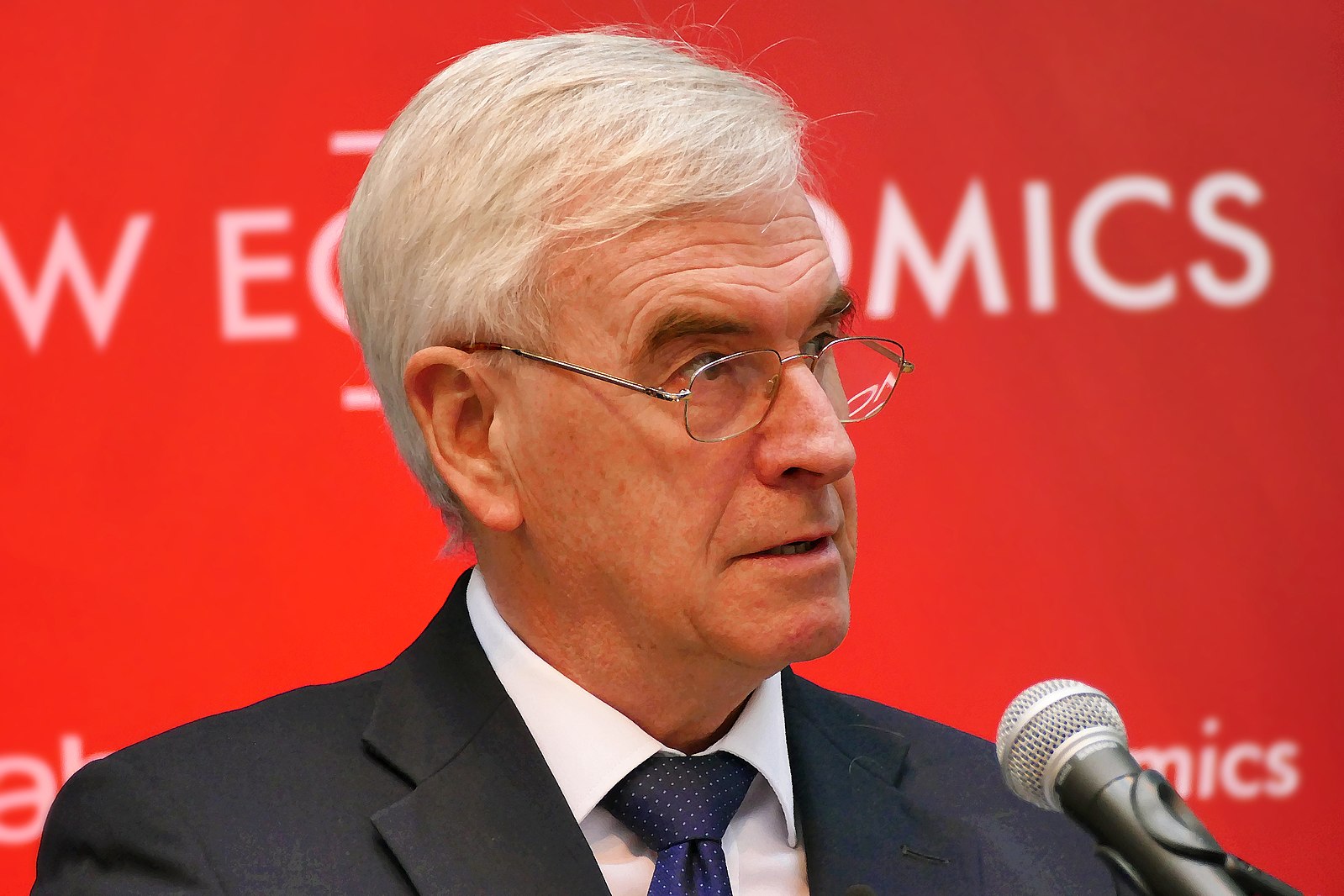Bold new proposals to offer everyone over the age of 18 in the UK £48 per week in an attempt to eradicate poverty in the UK have been met with praise by the UK Shadow Chancellor John McDonnell.
The new tax-free allowance would overhaul the current system, which allows all earners a set amount of tax free income per year, a figure which will rise as of April to £12,500 per year.
The new weekly national allowance is intended to help poorer families and individuals, but it would be available to everyone, would be offered in addition to benefits and wouldn’t be subject to employment status.
The proposals submitted by the New Economics Foundation thinktank would potentially help lift 200,000 families out of poverty, says the group.
Funding A New Weekly National Allowance

Image via Flickr
The weekly payments will be funded with the money saved by the tax-free allowance system. Critics of the current system say it unfairly benefits the rich, while not offering enough support to low earners and being costly in terms of public spending, due to regular increases in the amount of tax free income allowed.
One of the most expensive and regressive public spending initiatives of the 21st century so far.
NEF’s criticism of the current UK tax-free system
“The persistent increases to the personal allowance of income tax seen over the past decade represent one of the most expensive and regressive public spending initiatives of the 21st century so far,” said Alfie Stirling, a spokesperson from the New Economics Foundation.
He insisted the tax-free personal allowance as it stands is “costing more than the whole of defence, local government and the Department for Transport combined and enriching the highest income households almost seven times faster than the poorest”.
https://twitter.com/NEF/status/1105060548675358721
While the policy may face criticism from those earning highly, as it proposes to reduce the threshold for higher-rate taxpayers from £50,000 to £37,000, shadow chancellor John McDonnell said: “This is just the kind of innovative thinking we need on how to fix the imbalances and problems of our tax system.
“I hope it will be the start of a debate about how we make tax more progressive and deliver the public services funding that is so badly needed after nine years of austerity.”
The Treasury, who announced recently their plans to increase the personal non-taxable allowance to £12,500, said: “We’re raising the personal allowance one year early, which will mean that by April this year, 1.7 million income taxpayers will have been taken out of tax altogether since 2015-16.
Our policies are highly redistributive. In 2019-20, the lowest income households will receive over £4 in public spending for every £1 they pay in tax on average
The New Economics Foundation thinktank
“Our policies are highly redistributive. In 2019-20, the lowest income households will receive over £4 in public spending for every £1 they pay in tax on average, and the highest income households will contribute over £5 in tax for every £1 they receive in public spending on average.”
How Have Similar Schemes Fared Elsewhere?

Image credit: Flickr
Finland are in the midst of a two-year trial of what they are referring to as ‘basic income’, which follows a similar method to the British proposal in that it offers citizens a regular hand out of cash.
The difference is that in Finland the cash is only provided to young people out of work, rather than to all citizens regardless of their employment or wealth status. €560.00, roughly £481.00, is given to people aged between 25 and 28 per month – but first findings show no correlation between the handouts and the amount of young people in employment.
However, a spokesperson for the Finnish Government’s social security agency revealed those on basic income “had less stress…They also relied more strongly on their future and their social potential” and urged that long-term employment prospects weren’t able to be measured from first year findings.
In America the tech firm Y Combinator has pitched similar proposals to provide a basic income for 3,000 worst-off Americans to see if it encourages recipients to look for work and most importantly, reduces poverty levels.







